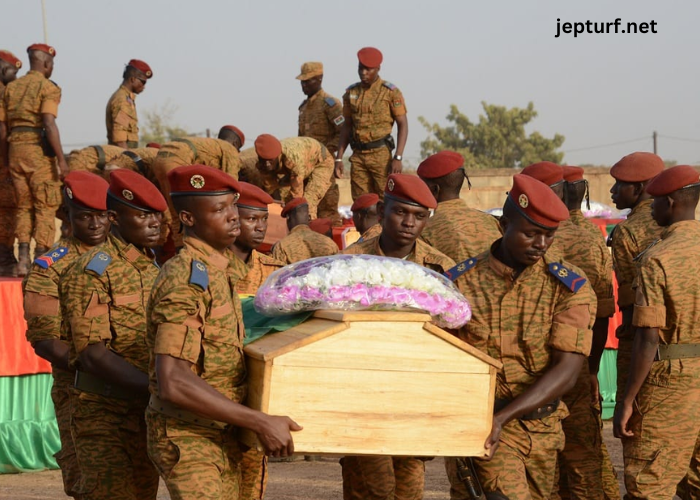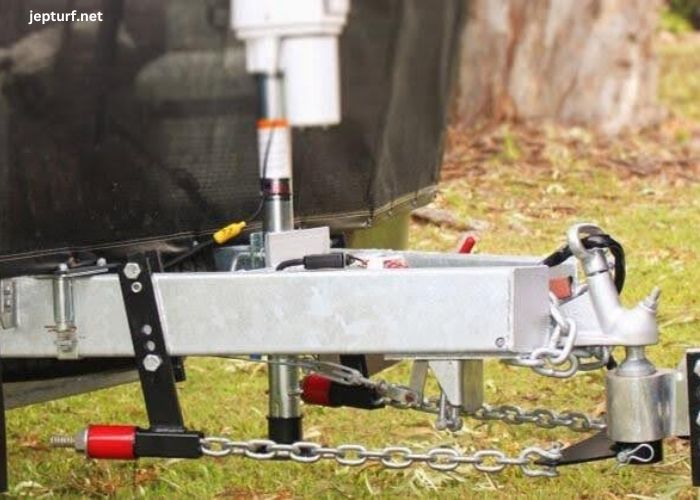Burkina Faso, a landlocked country in West Africa, has faced significant challenges in recent years due to the rising threat of terrorism. This article delves into the complex and evolving landscape of terrorism in Burkina Faso, exploring its origins, impacts, and the ongoing efforts to combat this threat. Understanding the nature of terrorism in this region is crucial for developing effective strategies to address the root causes and mitigate its effects.
The Rise of Terrorism in Burkina Faso
Historically, Burkina Faso has been relatively stable compared to some of its neighboring countries. However, in recent years, the country has experienced a dramatic escalation in terrorist activities. This shift can be attributed to a variety of factors, including regional instability, socio-economic conditions, and the influence of extremist groups operating across West Africa.
The Sahel region, which includes Burkina Faso, has become a hotspot for terrorist organizations. Groups such as Al-Qaeda in the Islamic Maghreb (AQIM), the Movement for Oneness and Jihad in West Africa (MOJWA), and more recently, the Islamic State in the Greater Sahara (ISGS), have established a presence in the area. These groups exploit local grievances, weak state institutions, and porous borders to further their agendas.
Origins and Motivations
Understanding the origins and motivations behind terrorism in Burkina Faso requires a look at the broader regional context. The Sahel region has long been affected by political instability, economic hardship, and environmental challenges. These factors have created a fertile ground for extremist ideologies to take root.
Regional Instability
The collapse of the Libyan government in 2011 and the subsequent chaos in the region contributed to the spread of weapons and militant groups throughout West Africa. This instability allowed extremist organizations to gain a foothold in neighboring countries, including Burkina Faso. The influx of weapons and fighters from Libya exacerbated the security situation, providing terrorist groups with the resources needed to operate more effectively.
Socio-Economic Conditions
Economic disparities and high levels of poverty in Burkina Faso have also played a role in fueling terrorism. In areas where economic opportunities are scarce, individuals may be more susceptible to extremist recruitment. Terrorist organizations often exploit these conditions by offering financial incentives or promising social and economic benefits to potential recruits.
Local Grievances
Local grievances, including ethnic tensions and disputes over land and resources, have been manipulated by terrorist groups to further their agendas. By tapping into existing conflicts and frustrations, these groups can gain support and legitimacy among local populations. This tactic has been particularly effective in the northern regions of Burkina Faso, where ethnic and communal tensions are prevalent.
Impacts of Terrorism on Burkina Faso
The rise of terrorism has had profound and far-reaching impacts on Burkina Faso. The consequences are not only felt in terms of security but also in the social, economic, and political spheres.
Humanitarian Crisis
One of the most immediate and visible impacts of terrorism in Burkina Faso is the humanitarian crisis it has triggered. The violence has led to widespread displacement, with hundreds of thousands of people forced to flee their homes. Internally displaced persons (IDPs) face severe challenges, including inadequate access to food, clean water, and medical care.
The ongoing conflict has also resulted in numerous casualties, with both civilians and security forces being targeted. The rise in violence has strained the country’s healthcare system and other essential services, exacerbating the suffering of affected communities.
Economic Disruption
Terrorism has disrupted economic activities in Burkina Faso, particularly in the northern regions where many attacks have occurred. The security situation has hindered agricultural production, which is a critical component of the national economy. Attacks on markets, transportation infrastructure, and agricultural facilities have further compounded the economic difficulties faced by local communities.
Social Fragmentation
The spread of terrorism has also contributed to social fragmentation in Burkina Faso. Ethnic and communal tensions have been exacerbated by the conflict, leading to increased mistrust and divisions among different groups. The involvement of terrorist organizations in local disputes has further polarized communities, making it more challenging to achieve social cohesion and stability.
Political Instability
Politically, terrorism has posed significant challenges for Burkina Faso’s government. The rise in violence has tested the government’s capacity to maintain order and provide security. In response to the growing threat, the government has implemented various measures, including military operations and international collaborations, to combat terrorism. However, the ongoing instability has also raised questions about governance and the effectiveness of the state’s response.
Efforts to Combat Terrorism
In response to the escalating terrorist threat, Burkina Faso has undertaken a range of measures to address the situation. These efforts involve a combination of military, diplomatic, and developmental approaches aimed at restoring stability and security.
Military and Security Operations
The Burkinabe government has launched several military operations to counter terrorist groups and reclaim territory controlled by extremists. These operations are often conducted in collaboration with regional partners and international allies. The government has also increased its security presence in vulnerable areas, including border regions and conflict zones.
Regional cooperation is a critical component of these efforts, given the transnational nature of terrorist groups. Burkina Faso has worked with neighboring countries, including Mali, Niger, and Chad, to strengthen security coordination and share intelligence. The G5 Sahel Joint Force, a regional security initiative involving Burkina Faso, Mali, Mauritania, Niger, and Chad, has played a significant role in combating terrorism and organized crime in the Sahel region.
International Support and Collaboration
International support has been instrumental in Burkina Faso’s efforts to combat terrorism. The country has received assistance from various international organizations, including the United Nations and the European Union, as well as from bilateral partners such as France and the United States.
This support has taken the form of financial aid, technical assistance, and training for security forces. International partners have also provided humanitarian aid to help alleviate the suffering of displaced populations and support local development initiatives aimed at addressing the root causes of terrorism.
Developmental and Humanitarian Initiatives
Addressing the underlying socio-economic conditions that contribute to terrorism is a key focus of Burkina Faso’s strategy. Developmental initiatives aimed at improving economic opportunities, education, and infrastructure are essential for long-term stability.
Humanitarian efforts have also been crucial in providing immediate relief to affected communities. International and local organizations have worked to deliver aid, including food, medical supplies, and shelter, to those displaced by the conflict. These initiatives aim to alleviate the immediate suffering of affected populations and support their recovery and resilience.
Promoting Social Cohesion
Efforts to promote social cohesion and address ethnic and communal tensions are an integral part of Burkina Faso’s strategy. Initiatives aimed at fostering dialogue and reconciliation among different communities are essential for building trust and reducing the potential for conflict. Community-based programs and local peacebuilding efforts play a crucial role in strengthening social ties and promoting stability.
The Path Forward
The challenge of terrorism in Burkina Faso is complex and multifaceted, requiring a comprehensive and sustained approach. While significant efforts have been made to address the immediate security threats, a long-term strategy is essential for achieving lasting stability and development.
Strengthening Governance
Strengthening governance and improving the effectiveness of state institutions are critical for addressing the root causes of terrorism. Building transparent and accountable institutions, enhancing the rule of law, and improving service delivery are essential for restoring public confidence and fostering stability.
Enhancing Regional Cooperation
Given the transnational nature of terrorism, regional cooperation remains vital. Continued collaboration among Sahelian countries and international partners is necessary to address the security challenges and coordinate efforts to combat terrorism and organized crime.
Fostering Economic Development
Economic development and poverty reduction are crucial for addressing the socio-economic factors that contribute to terrorism. Investing in infrastructure, education, and job creation can help provide alternative opportunities for individuals who might otherwise be drawn to extremist ideologies.
Promoting Resilience and Social Cohesion
Promoting resilience and social cohesion is essential for building a stable and inclusive society. Efforts to address ethnic and communal tensions, support community-based initiatives, and foster dialogue can contribute to long-term peace and stability.
Conclusion
Terrorism in Burkina Faso presents a significant and evolving challenge with profound implications for the country and the broader Sahel region. The rise in terrorist activities has had far-reaching impacts on the humanitarian, economic, and political landscape, highlighting the need for a multifaceted response.
The ongoing efforts to combat terrorism, including military operations, international collaboration, and developmental initiatives, are crucial for addressing the immediate threats and working towards long-term stability. By strengthening governance, enhancing regional cooperation, fostering economic development, and promoting social cohesion, Burkina Faso can work towards overcoming the challenges posed by terrorism and building a more secure and prosperous future.







